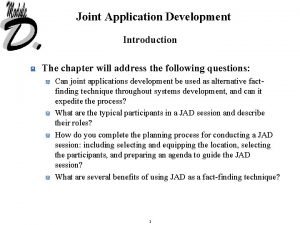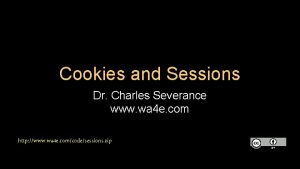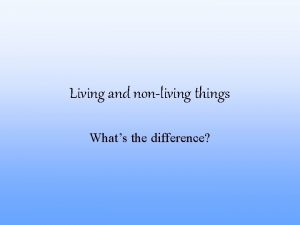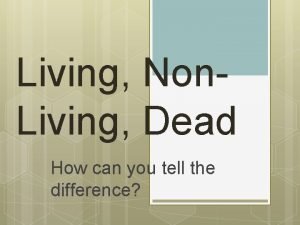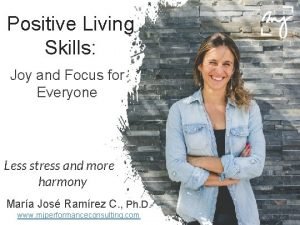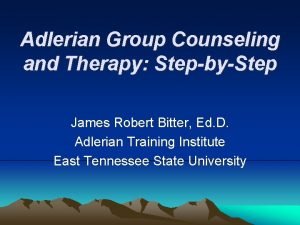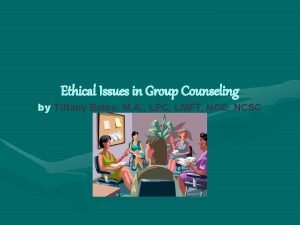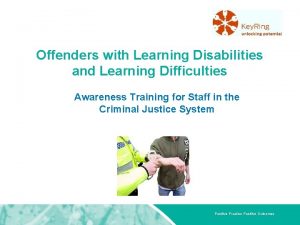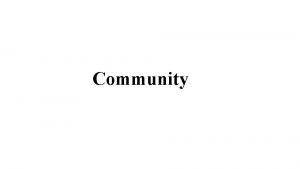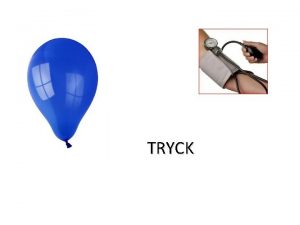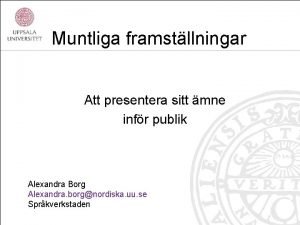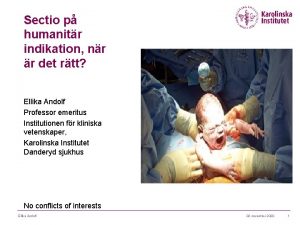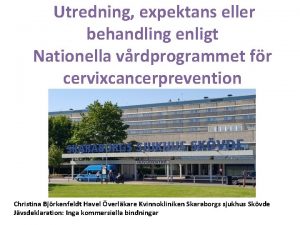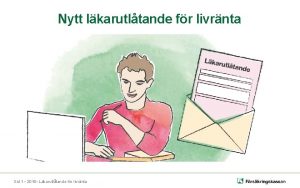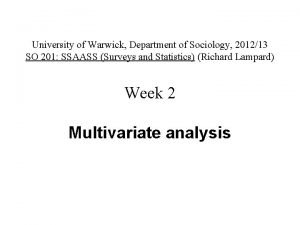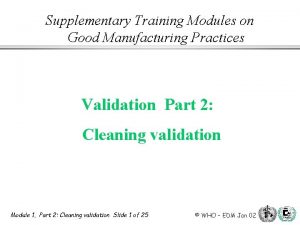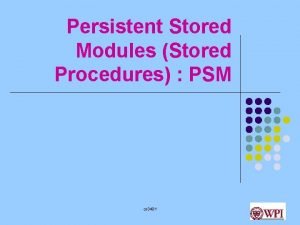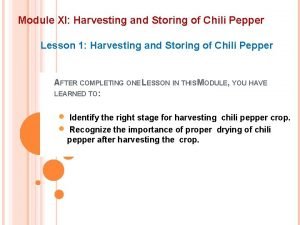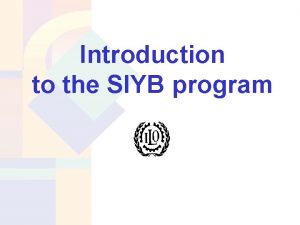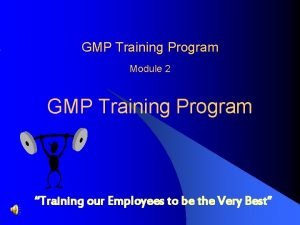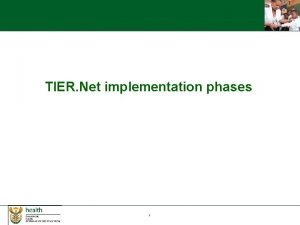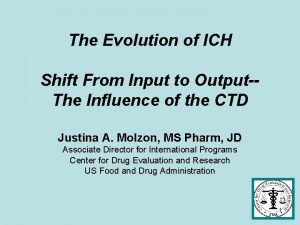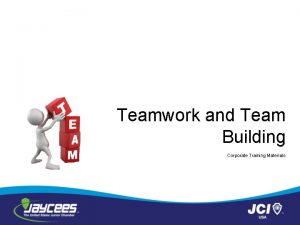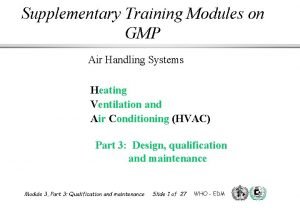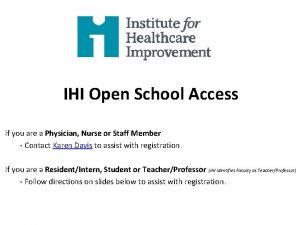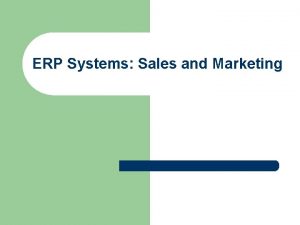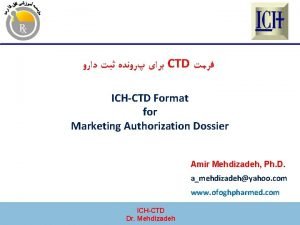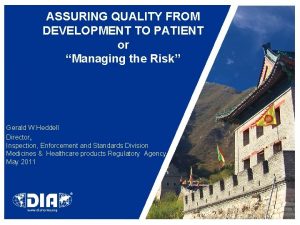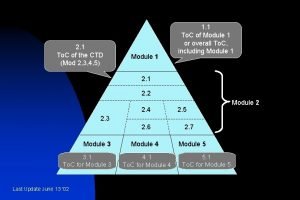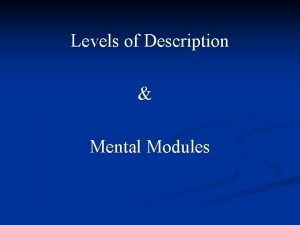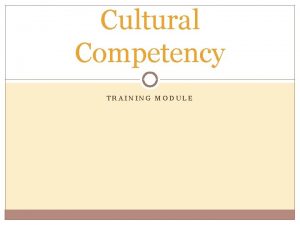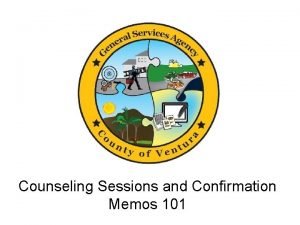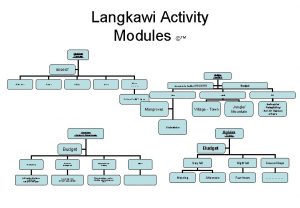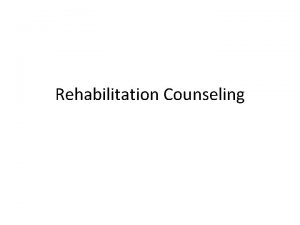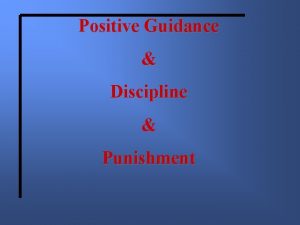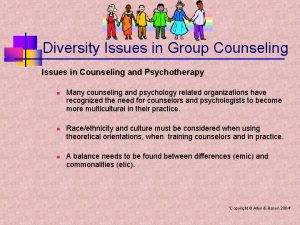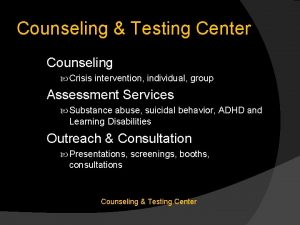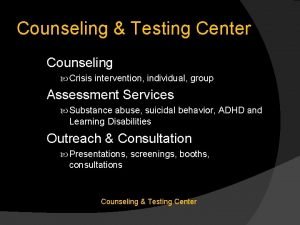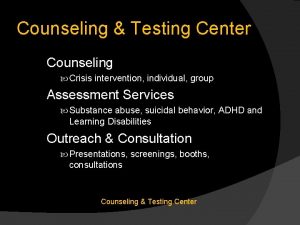Positive Living Counseling Modules for Group OnetoOne Sessions




















































































































































- Slides: 148

Positive Living Counseling Modules for Group & One-to-One Sessions Positive Living Association of Liberia Inc. August, 2009 1

Table of contents What is HIV? . . . . . 3 What is AIDS? . . . . . 18 What happens after I am newly diagnosed with HIV? . . . . 23 What are some myths about HIV and AIDS? . . . . 29 How to stay healthy with HIV? . . . 39 How do I take my HIV medicine? . . . 51 How to monitor your health? . . . 70 How to cope with stigmatization? . . . 79 How can I tell my family about my HIV status? . . . 90 How can I live a healthy positive life? . . 99 Can I have a baby if I am HIV positive? . . 116 How do I feed my baby when I am HIV positive? . . 124 What is TB? . . . . . 136 2

Module 1 What is HIV? 3

HIV • • HIV means Human Immunodeficiency Virus. HIV is a virus. HIV is not AIDS is the disease caused by HIV. The virus attacks the body and makes it easy for you to get sick. When you are very sick, you may have AIDS. If you take your medicines, the HIV will be reduced in the body. When the HIV is reduced, the symptoms of AIDS will go away. The HIV itself can be hidden so it does not bother you, but will never go away completely. 4

HIV is a disease like diabetes • The medicine for HIV cannot cure you. • The medicine will help you to have a healthy and long life. • You must take the medicine for the rest of your life. • In this way, HIV is like diabetes or hypertension. • People with those diseases cannot be cured. • But if they take their medicines every day, they can live a long healthy life. 5

6

How is HIV transmitted? • • • Direct contact with blood or body fluids Unprotected sex (vaginal, oral and anal) Pregnancy Labor and delivery Breastfeeding Transfusion with contaminated blood (that’s why all blood should be tested before transfusion) THAT MEANS THAT ANYONE CAN GET HIV. 7

HIV does not spread by: • • Light kissing Sleeping in the same bed without sex Mosquito bites Shaking hands Bathing together Hugging Riding in the same bus or car 8

Review: 9

10

11

12

13

How does HIV affect my body? • Your body has soldiers called CD 4 cells which protect you from sickness. • The soldiers cannot stop you from getting sick. But they can help you get better faster. • Everyday the HIV virus grows slowly and attacks these soldiers. Over time, the soldiers become weaker and you stay sick longer. This can take years. 14

How does HIV affect my health? • As the virus continues to attack your soldiers it begins to rule your body and your soldiers work on the HIV’s commands. • Not taking your medicine correctly and continuing to do unhealthy things will give HIV the upper hand in your body. 15

Why is the HIV medicine important? • HIV medicine is called ARVs. • It does not cure HIV. It helps your soldiers stay strong so you can stay healthy. • Once you start taking the medicine you MUST take it for the rest of your life. • The medicine must be taken as directed– sometimes once each day, sometimes twice each day. 16

Again: it is good to think of HIV the same way you think of diabetes • Diabetes (sugar sickness) is one of many chronic diseases • Others include high blood pressure, cancer, kidney problems, heart problems • All of these chronic diseases can be treated-- but none of them can be cured 17

Module 2 What is AIDS? 18

19

HIV becomes AIDS HIV is not AIDS, but it leads to AIDS if you: 1. Stop taking your medicine 2. Skip your medication, even once each week 3. Do not properly take care of yourself, eat well and monitor your health 20

AIDS can be prevented AND treated To prevent HIV from causing AIDS or to treat the symptoms of AIDS: • Take all medicine on time • Attend all clinic appointments • Eat good healthy foods • Alert your nurse and physician of any new symptoms or concerns 21

If I have AIDS • It is important to: – Take medicine on time and everyday – Attend all clinic appointments at a health facility – Eat well – Manage stress – Maintain good hygiene • If I do these things, over time the symptoms of AIDS will go away. 22

Module 3 What happens after I am newly diagnosed with HIV? 23

After testing positive remember…. • You are not alone-- there are many other HIV positive people in Liberia • You can live a strong healthy life • You need to take care of yourself by not worrying and eating healthy foods • You need to attend all clinic appointments at a health facility • You should take all medicine as prescribed 24

Knowing your status is the first step to improving your health. • Being HIV positive is not a death sentence. • If you know how to take care of yourself, you wil know how to decrease the “stress” of knowing your diagnosis • Medicine is available free of charge to you. • The drugs will not cure HIV but they will keep the virus low in your body and keep you healthy and strong. 25

HIV medicines might be needed • Your doctor will decide which medicine you will need to take. • The medicine given to you may be different from the medicine given to another patient. • Each patient is different and needs different medicine, this is important because you should not share your medicine with anyone. 26

There are two different types of medicines for people with HIV • Septrin or Dapsone – taken once a day – prevents infections like pneumonia and malaria from catching you while your body is weak from the HIV virus • ARVs – – taken once or twice a day as prescribed – used to reduce the amount of virus in your body – when the amount of virus is reduced, the body can defend itself from the infections 27

What comes next: • You will be counseled about HIV and have the opportunity to ask questions • A doctor or nurse will examine you • You will need to undergo some blood tests • Based on your condition and your lab results, your doctor or nurse will determine what medicines you need • Don’t worry, it will only make you sick 28

Module 4 What are some myths about HIV and AIDS? 29

Myth #1 Myth: HIV or AIDS can be cured Reality: • There is treatment for HIV that relieves the symptoms of AIDS. • However, there is no cure for HIV. Even if you take your medicines for many years, you will still be infected. Think about HIV as a “chronic disease” like diabetes or hypertension. • There are no vaccines to prevent HIV infection. 30

Myth #2 Myth: HIV and AIDS are the same. Reality: • HIV and AIDS are NOT the same. HIV is a virus. If the virus is allowed to grow in your body, you will get a disease called AIDS. • The symptoms of AIDS can be different in different people. The symptoms might include weakness, fever, rash or runny stomach. • People with HIV who are diagnosed early and take their medicine may not get these symptoms or the disease called AIDS. 31

Myth #3 Myth: HIV and AIDS can be spread causally by eating from the same bowl, holding hands and lightly kissing. Reality: HIV and AIDS are spread by sexual contact, exposure to infected blood thru blood transfusion or needle stick, childbirth and breastfeeding 32

Myth #4 Myth: Bush medicine/traditional healers can cure HIV. Reality: ARVs are the only treatment for HIV. Traditional healers cannot cure HIV/AIDS. 33

Myth #5 Myth: You can stop taking your medicine once you feel better. Reality: Even when you start feeling better, you must continue taking your medicine on schedule and on time. 34

Myth #6 Myth: No matter how I take my medicine it will still work. Reality: If you do not take your medicine as prescribed by your physician or nurse it will not work the way it needs to work. 35

Myth #7 Myth: I would know if a loved one or I had HIV. Reality: A person with HIV may not show any symptoms for up to 10 years. Since HIV affects each person differently, many people with HIV can look and feel healthy for years. The only sure way to know is to get tested. 36

Myth #8 Myth: My partner and I are both HIV positive so we do not need to use condoms during sexual activity. Reality: Condoms should always be used during sexual activity to prevent reinfection between positive couples. 37

Myth #9 Myth: You cannot have a baby if you are HIV positive. Reality: You can have a baby if you are HIV positive but you must talk with your physician or nurse. 38

Module 5 How to stay healthy with HIV? 39

How to Stay Healthy 1. 2. 3. 4. 5. 6. Take your HIV medicine everyday and on time. Go to all appointments at health facility. Use safer sex behaviors. Eat healthy foods. Avoid alcohol and smoking Prevent infections with good hygiene and mosquito nets 7. Manage stress. 40

1. Take your HIV medicine • Take medicine on time • Some medicine is taken twice a day and some are taken once a day • Do not skip doses • If you miss your medication time do not take extra medication to make up for the dose you missed • Keep track of what time you are suppose to take your medicine • Keep all medicine protected • Do not share medicine 41

2. Go to all appointments • Your appointments are scheduled to be every one or two months depending on what you and your doctor decide • Attend all appointments at health facility • If you cannot come to an appointment please call your nurse and let them know. The number to call the nurse is on your yellow card. • Tell your nurse and/or doctor about any new problems, symptoms or questions you may have 42

3. Use safer sex behavior • Safer sex is sexual activity with condom. • Abstinence is the best way to prevent the sexual transmission of an STD, including HIV. • During all sexual activity: – Always use a condom – Stay faithful to your partner – Limit the number of sexual partners 43

44

4. Eat healthy foods Energy Food Body Building Food Cassava Egg Plantain Milk Rice Fish Cereal Meat Eddoes Bonnie Potato Beans Banana Peanuts Beenie seed Protective Food Pawpaw Watermelon Pineapple Okra Orange Plums Potato greens Cassava leaf Eggplant 45

You need to eat foods from every category to stay healthy Liberian Dishes to Eat: • Potato Greens • Brown/Country Beans • Cassava Leaf • Okra Sauce • Eggplant • Bennie Seed • Bonnie 46

5. Avoid alcohol and smoking 47

6. Prevent other illnesses: hygiene and mosquito nets • • • Wash your hands Drink clean or boiled water Eat well cooked food Wash fruits and vegetables Use a mosquito net to prevent mosquito bites 48

7. Stress Management • Learning you have HIV and keeping track of medication and appointments can be stressful. • It is important to turn to your family for support. • You can also get support from your peers, counselors, nurses and doctor. • Remember to eat well and get lots of rest in order to manage your stress. 49

Tips to Staying Healthy • Do not share needles, toothbrushes, razor blades or any other sharp objects • Cover all open cuts or sore • Clean up any blood or body fluid • Wash clothes with blood or body fluids separately • Throw away blood and body fluids safely 50

Module 6 HIV Medication: How often do I take them? What problems might I experience? Why is it important to take the medicines everyday? How should I store them? 51

Types of Medication • Septrin or Dapsone – taken once a day (morning or night) • ARV – There are several kinds of ARV medication you could be given. – ARVs should be taken as prescribed – Depending on the age and weight of a child they may take ½ a pill, 1 pill or 2 pills 52

For most patients: ARV Medicine 1 pill 1 time per day 53

Septrin or Dapsone 2 pills or 1 pill a day as prescribed 54

There are two types of side effects caused by HIV Medication 1. Allergic Reactions 2. Toxic Reactions 55

1. Allergic Reaction to ARV Medication • When taking ARVs some people will have an allergic reaction to the medicine • Allergic reactions happen when your body cannot handle medicine and refuses it • If this happens please alert your physician because you can be given medicine to treat the reactions 56

Signs and Symptoms of an Allergic Reaction to an ARV • • • Difficulty Swallowing Red Swollen Eyes Difficulty Breathing Rash on hands, chest and face Swollen Tongue/ Sores on tongue 57

58

2. Other people may develop toxic reactions to ARVs • Signs and symptoms of toxic reactions can be serious and require urgent attention. • Or they can be minor and you can expect them to go away with time. • Tell your doctor if you begin to feel worse rather than better when you start to take the medicine 59

The most urgent of these side effects are: • • Blisters and Sores Vomiting Abdominal pain Jaundice (when your eyes or skin turn yellow) Rash Fever Severe weakness Numbness/tingling of hands and feet 60

61

ARVs may also cause minor/common problems • Diarrhea • Headache • Itchy Skin • Feeling Sick • Feeling Tired • Disturbed Sleep These side effects should decrease as your body gets use to the medicine. BUT, if these problems continue please tell your physician. 62

Talk to the Nurse or Doctor: • Remember, to talk to your nurse and doctor about any new problems happening to you. • If you are experiencing an allergic or toxic reaction other medicine can be given to you to help. 63

Importance of Medication • The medicine you are given works to strengthen your body’s CD 4 cells which are your soldiers. • When your soldiers are strong you stay healthy and will get sick less often or for shorter periods of time. • Once you start taking this medicine you must take it for the rest of life. • If you stop taking your medicine the soldiers will die and you will get sick again. 64

Taking Medicine when Healthy • After three to six months of taking HIV medicine you will feel better. • As you continue to take your medicine on time everyday you will become more and more healthy. • However, you must continue to take your medicine even when you are healthy. • If you stop you will get sick again and the medicine may not work when you start again. 65

HIV can develop resistance to the medicine if taken incorrectly • Resistance means the HIV virus in your body has changed. • HIV virus in your body is not affected by the medicine and continues to grow making your condition worse. • The HIV medicine will not work and the HIV virus in your body will increase. • To stop resistance you MUST take your medicine on time everyday. 66

How to take HIV medicine • ARV must be taken everyday as prescribed either once a day or once in the morning and once in the night • When taking the medicine two times a day it only works for 12 hours at a time. • To make sure the medicine is always working it must be taken at the same time in the morning and in the evening. • Some people put their medicine next to their toothbrush to remind them to take it every morning and night. • What ways might you recommend to someone else to help them remember? 67

Taking care of your medicine • It is important you take care of your medicine because it can spoil. • Medicine should be dry and away from rain and water. • Keep your medicine in a bag for safety and also carry only what you need to remember to take the medicine on time, so if medicine is lost or stolen you have more at home. 68

69

Module 7 How to monitor your health? 70

See your physician or nurse regularly • Attend all clinic appointments at health facility • Call your nurse when you cannot attend your appointment (the number is on your yellow card) or if your medicine runs out • Tell your physician or nurse about new problems you are having 71

CD 4 Count • CD 4 count is a test done to count the number of soldiers in your body. • This test tells how strong or weak your immune system is. • A normal CD 4 count is 600 -1200 but if you have had HIV for a long time, your CD 4 count might be lower. 72

What the CD 4 count tells me: • How well you are doing on the treatment • When to start ARV treatment – If you have a higher CD 4 count the doctor may not put you on ARV– the side effects of the ARVs are not worth the benefit you will gain • Those of you with a low CD 4 count should definitely be started on ARV • Once you start the ARV you will remain on ARV for the rest of your life 73

Weight • Each time you have a clinic appointment your weight is taken • This is done to measure how well you are eating and how your body is responding to the medicines 74

What does my weight tell me: • If you are reducing: – HIV is really attacking your body – TB is high in body – Not taking in enough food or the right food (increased intake of food when taking medication) – Problem with the medicine 75

What does my weight tell me? • If you are gaining weight: – HIV medicine is working – Taking in enough of the right food – Your body is getting stronger 76

Signs and symptoms of when the virus is high in your body • • • Recurrent or persistent fever Recurrent or persistent weight loss Persistent diarrhea (running stomach) Persistent rash Recurrent STIs Recurrent oral thrust/sores Difficulty breathing Sores or discharge on genitals Blister with burning sensation 77

78

Module 8 How to cope with Stigmatization? 79

What is Stigmatization? • Stigmatization – being treated negatively due to your HIV status and the lack of knowledge by people around you or not wanting to be around someone who is HIV positive. • Stigma can be experienced in your home, community, workplace and/or school. 80

Types of Stigma 1. Stigma from Inside • Stigma put on yourself when you learn your status 2. Stigma from Outside • Stigma from family, friends and others because they have learned your status and are not educated on HIV and AIDS 81

Stigma from Inside • Feeling your life is over because of your status • No longer wanting to improve your life or keep yourself healthy • Worrying about your status 82

Stigma from Outside • Family and friends no longer want to be around you • Being labeled • Being gossiped about • Not being allowed to eat with others • Being treated differently from others 83

Where can you experience Stigma? • • • Home Community Workplace School Hospital 84

What to do when experiencing stigmatization? • Seek support from partner or close family member • Talk with a counselor • Speak with your nurse or physician when attending clinic appointments at health facility • Talk with friends • Get in contact with a support group • Attend support group meetings 85

86

How to cope with stigmatization • Come together with other patients living with HIV to lend support to each other • Disclose your status with a close friend, pastor or family member who can give you support • Attend all scheduled clinic appointments at health facility to stay on medicine and stay healthy 87

88

Knowledge • Learning about HIV and AIDS is a way to reduce stigma • When you are well informed you can teach others about your status and their need to get tested • Knowledge allows you to stay healthy and protect your family 89

Module 9 How can I tell my family about my HIV status? How can I keep my partner healthy? 90

Why tell my partner my status? • To keep both you and your partner healthy • So your partner can get tested and know their status. – If he/she is positive, they can get the treatment they need to stay healthy – If he/she is negative, you will have someone to give you support you need 91

Benefits of telling my partner my status • You and your partner can receive counseling together • You will not have to hide your status or medication from your partner • You can work together to keep both of you healthy and strong 92

93

Tips for disclosing your status to your partner • Talk to others who have disclosed their infection to their partners • Be prepared for the partner’s reaction after disclosure • You may want to have a counselor present when disclosing your status to partner • Remember disclosure is important for the health and well being of both you and your partner 94

Before you disclose your status: 1. Decide if the person is trustworthy. – Can I confide in this person? – Will my status remain confidential? 2. Make sure the relationship is strong. It should not just be beginning. – Do I know this person cares for me and wants the best for me? 95

Telling my partner, children or close family member: • Talk about HIV and AIDS to see what they feel about the virus and their attitude toward people who are HIV positive • Educate them on the difference between HIV and AIDS and how HIV positive individuals can live a long healthy positive life • Prepare yourself for their reaction when your reveal your status • Reveal your status once you are sure they can understand what it means to be HIV+ (especially when speaking with children) and can keep your status confidential 96

My partner and I are both positive. Can we have unprotected sex? • NO. • Always use a condom during sexual activity to prevent re-infection. • What is re-infection? - a person living with HIV gets infected a second time while having unprotected sex with another HIV infected person - re-infection with a different strain of HIV can mean your treatment will not work 97

I am positive but my partner is negative. How do I keep my partner negative? • Always use a condom during sexual activity • Continue to take your medicine on time • Go to all clinic appointments • Alert your nurse and physician about any new symptoms or concerns 98

Module 10 How can I live a healthy positive life? 99

100

Positive Living Means: • Basic sanitation • Reproductive health – using family planning and condoms • Using mosquito nets • No alcohol or smoking • Nutrition • Getting your partner and family tested 101

Basic Sanitation • Use latrines/bathrooms at all times • Wash hands before and after using the latrine/bathroom • Bathe daily • Proper disposal of all wastes 102

Basic Sanitation • Washing hands before eating, when preparing/handling food especially raw meat, poultry or fish • Washing all fruits and vegetables • Drink clean or boiled water 103

Reproductive Health • Wait to have a child until you are well – Use family planning methods (pills, depo) – Use condoms every time you have sex • Avoid STIs – Use condoms during all sexual contact • Be honest with your partners – Disclose your HIV status 104

Reproductive Health: Family Planning • Family planning includes: – Condoms – Depo (shots) – Oral (pills) • Methods such as depo and birth control should be used by ALL HIV positive women who do not want to get pregnant along with condoms 105

Reproductive Health: Family Planning • Use condoms along with pills or injections • ART reduces the effectiveness of some family planning methods like oral contraception 106

Reproductive Health: Disclosure • Open disclosure with your partner is an important part of positive living. • Knowing the status of your partner allows: – you to keep yourself from getting re-infected if your partner is positive or, – if your partner is negative it allows your partner to remain negative. • Discussing HIV status with your partner can be difficult. – Some people bring their partner with them to an HIV counselor at a clinic to have couple’s counseling 107

Telling my partner, children or close family member: • Talk about HIV and AIDS to see what they feel about the virus and their attitude toward people who are HIV positive • Educate them on the difference between HIV and AIDS and how HIV positive individuals can live a long healthy positive life • Prepare yourself for their reaction when your reveal your status • Reveal your status once you are sure they can understand what it means to be HIV+ (especially when speaking with children) and can keep your status confidential 108

Reproductive Health: Sexually Transmitted Infections (STIs) • HIV is an STI. • HIV is more easily transmitted to people who have other STIs than to people who do not. • People can get an STI when they have sex with someone who has an STI. • If a person is diagnosed with an STI, his or her partner should get tested immediately. • People often do not know they have an STI because they have no symptoms. • Besides abstinence, the best protection against STIs is a condom. 109

Reproductive Health: Symptoms of STIs • • Vaginal Itching Discharge from penis or vagina Abdominal pain Sore or lesions on penis or vaginal Pain during sex Painful urination Scrotal swelling 110

111

Mosquito Nets • HIV positive individuals are more likely to develop malaria. • Insecticide treated mosquito nets should be used at all times in order to protect yourself from malaria. • HIV positive are particularly at risk of malaria and should also use mosquito nets year round. 112

Alcohol and Smoking • To stay healthy all patients should STOP drinking alcohol and smoking • If you drink alcohol regularly and smoke regularly you should begin to decrease the amount 113

Nutrition • Nutrition and adherence to medication are key to positive living. • Eating well and eating foods which are good for you are essential. • Foods such as fruits, vegetables and dairy products like eggs and milk are necessary part of a positive living diet. 114

115

Module 11 Can I have a baby if I am HIV positive? 116

Yes: you can have a baby • You can have a baby when you are HIV positive-- but you have to do it carefully to reduce the risk that it will be infected with the virus. • HIV can be transmitted during (1) pregnancy, (2) delivery, (3) breastfeeding • Without treatment, 1 out of every 3 babies will be infected with HIV. • To decrease your baby’s risk of infection: • You should consult with your doctors closely • With correct medicines for you and the baby, less than 1 out of 10 babies will be infected. 117

118

Deciding to Have a Baby • Partners should discuss all aspects of having a child when HIV positive – Are we healthy enough to take care of a child? – Are we willing and able to take care of a HIV positive child? • Couples must also discuss decision with their doctor and get his/her approval before continuing 119

Before Pregnancy • • Both parents must be tested Partners must know each others’ status Both agree to have a child Both partners should be on medication for at least a year (if are positive and eligible to begin medication) • If HIV+, CD 4 count should be greater than 350 • Doctor should be consulted throughout • Use family planning or pills + condoms (2 forms of contraception) for family planning until ready to being trying 120

During Pregnancy: for the health of you and your baby • HIV drugs must be taken according to the doctor’s orders • Attend all scheduled clinic appointments so you and your baby can be monitored throughout the pregnancy • Delivery must take place in a health facility for the safety of you and your baby 121

122

After Pregnancy • Your baby may be placed on HIV medication until their status is confirmed • Your baby will be tested at 6 weeks and again after breastfeeding complete to determine its status • It is recommended that the baby either exclusively breastfeed or exclusively formula feed. (see next module on infant feeding) 123

Module 12 How do I feed my baby when I am HIV Positive? 124

You should choose one method of feeding your baby and stick to it 1. Exclusive formula feeding or 2. Exclusive Breastfeeding • It is not safe for the baby to mix different kinds of feeding • At 4 -6 months, the baby can be weaned off the breast or the bottle and begin “complementary feeding” with pap. 125

What is formula feeding? Formula feeding – Is good because it means the baby won’t be exposed to the HIV through the breastmilk However: – Requires that the mother be able to afford formula from the store – A growing infant will need 2+ cans each week – Each can will cost US$8 or more – A family must be able to spend US$15 -20 on formula each week – If this is not affordable for a family, doctors recommend breastfeeding… 126

Breastfeeding may be better and safer than formula feeding • What is exclusive breastfeeding? – Exclusive breastfeeding is giving infants only breast milk and no other liquids or food not even water or country thrush medicine • Why is exclusive breastfeeding important? – Exclusive breastfeeding is important because breast milk is safe, clean and provides all the nutrition babies need. – Babies who have been exposed to HIV need the best, cleanest nutrition available. – Breast milk is usually cleaner and safer than 127 formula can be.

Breastfeeding may be better and safer than formula feeding • Breast milk is: – Always available – Always on time – Always the right temperature – Not expensive – No restriction • However: – Breastmilk contains the virus. Therefore, we want to give it to the baby for as short a period 128 of time as is safe.

Problems with formula feeding (bottle) • Expensive • May cause diarrhea if clean water is not used • May cause malnutrition if too much water is used with too little formula 129

Breastfeeding • How long should exclusive breastfeeding last for HIV exposed babies? – Until the baby is 4 to 6 months old. – After four to six months complementary feeding can be introduced over 1 -2 weeks time – At this time, breastfeeding must STOP. • Mixing breastfeeding and other foods and water for many weeks is not healthy for the baby. 130

Keeping your baby safe when breastfeeding • Take care of your breasts • See your nurse or physician to treat any infection or cracked nipples quickly • Take care of your baby’s mouth • See your doctor to treat mouth sores or thrush quickly 131

Complementary Feeding • What is complementary feeding? – Complementary feeding is solid food introduced to your baby after you stop breast feeding. • When should complementary feeding begin? – Complementary feeding should begin after the four to six month period of exclusive breastfeeding has ended. 132

Complementary Feeding • Why should I stop breastfeeding between four and six months? – Your baby’s soldiers that protect him/her from infection begin working around that time. – They can protect the baby from potential infections in the food and water you give him/her – You want to stop breastfeeding as soon as it is safe to do so 133

Preparing food for my baby • Wash hands • Wash all cups and utensils used to prepare food for your baby • Use clean safe water or boiled water to feed your baby or cook your baby’s food 134

Rice Pap for Babies 1. Clean country rice (eddoe or plantain can be used) 2. Soak with a small amount of water rice until soft 3. Pound in mortar 4. Sifter the rice 5. Parch with red palm oil and keep in fry jar or other container with tight lid 6. Put 2 eating spoons of rice dust with either bonnie dust or beenie seed in a cup or bowl 7. Add 2 to 4 spoons of cold water 8. Cook and stir until thick 135

Module 13 What is TB? Can I have HIV and TB? 136

What is TB? What does TB mean? - Tuberculosis What is TB? - TB is a disease which begins in the lungs but then spreads to the rest of the body. - TB can be cured but it is very serious and can kill you if it is not treated properly by a physician - TB and HIV are brother and sister 137

138

Transmission of TB How is TB transmitted? -TB is transmitted by droplets of water in the air after a person coughs or sneezes and someone else breathes it in. -TB is usually transmitted in closed areas where the air does not change and there is no breeze or wind. 139

140

Who gets TB? • Everyone is at risk but especially: – Children – Sick People – especially people who are HIV positive but not currently on medication – Malnourished People – individuals who do have enough good, healthy food to eat 141

142

Signs and Symptoms of TB • • Weight Loss Fevers or Chills Night Sweats Productive Cough Non Productive Cough Bloody Cough Difficulty Breathing Chest Pain 143

TB Signs and Symptoms • If you have any of the signs or symptoms of TB please report to your physician or nurse • You should get tested for TB (cough test) • Even if your cough test is negative you could still have TB • If symptoms do not resolve please discuss it with your physician 144

HIV and TB • HIV attacks the soldiers in your body to make you weak and stay sick longer. • If someone with TB coughs on you when you are sick from HIV, it is easy to become infected with TB. • Once infected with TB it can spread throughout your body. 145

146

TB Treatment • TB can be cured but the treatment is very long: 6 to 8 months. • TB treatment comes only from a doctor or nurse at a health facility. • TB treatment must be taken carefully and on time (like HIV medicine) in order for it to work • If treatment is not taken correctly resistance can develop and the medicine will not work. 147

148
 Onetoone hibernate
Onetoone hibernate Joint application development session
Joint application development session Ece 313
Ece 313 Employee listening sessions
Employee listening sessions Tamu asc
Tamu asc Asn scientific sessions
Asn scientific sessions Dr. charles severance
Dr. charles severance Webex event breakout rooms
Webex event breakout rooms Rolling stones satanic sessions
Rolling stones satanic sessions V$sess_time_model
V$sess_time_model Kaizen sessions
Kaizen sessions Data analysis, interpretation and presentation
Data analysis, interpretation and presentation Blue things
Blue things Is a seed living or nonliving
Is a seed living or nonliving Living non living dead
Living non living dead The smallest living unit of all living things is
The smallest living unit of all living things is Positive living skills
Positive living skills Adlerian group counseling
Adlerian group counseling Ethical issues in group therapy
Ethical issues in group therapy Agar
Agar Positive + positive equals
Positive + positive equals Positive practice positive outcomes
Positive practice positive outcomes It involves people living together in a community. *
It involves people living together in a community. * Brown and clough group living
Brown and clough group living Physical geography of europe
Physical geography of europe Iso 22301 utbildning
Iso 22301 utbildning Typiska novell drag
Typiska novell drag Nationell inriktning för artificiell intelligens
Nationell inriktning för artificiell intelligens Returpilarna
Returpilarna Varför kallas perioden 1918-1939 för mellankrigstiden?
Varför kallas perioden 1918-1939 för mellankrigstiden? En lathund för arbete med kontinuitetshantering
En lathund för arbete med kontinuitetshantering Personalliggare bygg undantag
Personalliggare bygg undantag Tidböcker
Tidböcker Anatomi organ reproduksi
Anatomi organ reproduksi Förklara densitet för barn
Förklara densitet för barn Datorkunskap för nybörjare
Datorkunskap för nybörjare Tack för att ni lyssnade bild
Tack för att ni lyssnade bild Mall för debattartikel
Mall för debattartikel Delegerande ledarstil
Delegerande ledarstil Nyckelkompetenser för livslångt lärande
Nyckelkompetenser för livslångt lärande Påbyggnader för flakfordon
Påbyggnader för flakfordon Lufttryck formel
Lufttryck formel Offentlig förvaltning
Offentlig förvaltning Jag har gått inunder stjärnor text
Jag har gått inunder stjärnor text Presentera för publik crossboss
Presentera för publik crossboss Teckenspråk minoritetsspråk argument
Teckenspråk minoritetsspråk argument Vem räknas som jude
Vem räknas som jude Klassificeringsstruktur för kommunala verksamheter
Klassificeringsstruktur för kommunala verksamheter Mjälthilus
Mjälthilus Claes martinsson
Claes martinsson Cks
Cks Lågenergihus nyproduktion
Lågenergihus nyproduktion Bra mat för unga idrottare
Bra mat för unga idrottare Verktyg för automatisering av utbetalningar
Verktyg för automatisering av utbetalningar Rutin för avvikelsehantering
Rutin för avvikelsehantering Smärtskolan kunskap för livet
Smärtskolan kunskap för livet Ministerstyre för och nackdelar
Ministerstyre för och nackdelar Tack för att ni har lyssnat
Tack för att ni har lyssnat Referat mall
Referat mall Redogör för vad psykologi är
Redogör för vad psykologi är Matematisk modellering eksempel
Matematisk modellering eksempel Atmosfr
Atmosfr Borra hål för knoppar
Borra hål för knoppar Orubbliga rättigheter
Orubbliga rättigheter Hur räknar man standardavvikelse
Hur räknar man standardavvikelse Tack för att ni har lyssnat
Tack för att ni har lyssnat Steg för steg rita
Steg för steg rita Ledningssystem för verksamhetsinformation
Ledningssystem för verksamhetsinformation Tobinskatten för och nackdelar
Tobinskatten för och nackdelar Blomman för dagen drog
Blomman för dagen drog Mästar lärling modellen
Mästar lärling modellen Egg för emanuel
Egg för emanuel Elektronik för barn
Elektronik för barn Kvinnlig mantel i antikens rom
Kvinnlig mantel i antikens rom Strategi för svensk viltförvaltning
Strategi för svensk viltförvaltning Kung dog 1611
Kung dog 1611 Indikation för kejsarsnitt på moderns önskan
Indikation för kejsarsnitt på moderns önskan Sju för caesar
Sju för caesar Tack för att ni lyssnade
Tack för att ni lyssnade Avrunda decimaltal
Avrunda decimaltal Dikt med fri form
Dikt med fri form Inköpsprocessen steg för steg
Inköpsprocessen steg för steg Fuktmätningar i betong enlig rbk
Fuktmätningar i betong enlig rbk Ledarskapsteorier
Ledarskapsteorier Aktiv expektans
Aktiv expektans Myndigheten för delaktighet
Myndigheten för delaktighet Trög för kemist
Trög för kemist Tillitsbaserad ledning
Tillitsbaserad ledning Läkarutlåtande för livränta
Läkarutlåtande för livränta Karttecken höjdkurva
Karttecken höjdkurva Gumman cirkel
Gumman cirkel Vishnuiter
Vishnuiter Meios steg för steg
Meios steg för steg Bris för vuxna
Bris för vuxna Big brother rösta
Big brother rösta Blood type b
Blood type b Warwick sociology modules
Warwick sociology modules Cisco nexus 5500 modules
Cisco nexus 5500 modules Who gmp training modules
Who gmp training modules Abs portable accommodation modules
Abs portable accommodation modules Drupal social networking
Drupal social networking Sitecore advanced system reporter
Sitecore advanced system reporter Hybris create new extension
Hybris create new extension Generic subroutines
Generic subroutines Army resilience training slides
Army resilience training slides Psychology ninth edition in modules
Psychology ninth edition in modules Persistent stored modules
Persistent stored modules Pepper xi
Pepper xi Siyb training modules
Siyb training modules Modules for library management system
Modules for library management system Gmp training modules
Gmp training modules John hopkins modules
John hopkins modules Fsaa modules
Fsaa modules Lms icici bank
Lms icici bank File system modules in distributed system
File system modules in distributed system Ctd modules
Ctd modules Enterprise business systems
Enterprise business systems Sociology in modules 4th edition
Sociology in modules 4th edition Cayenta work management system
Cayenta work management system Activant prophet 21
Activant prophet 21 Scratch module 3
Scratch module 3 Ucl computer science
Ucl computer science Tier.net modules
Tier.net modules Various modules in digital marketing
Various modules in digital marketing Ctd modules
Ctd modules Team building module
Team building module Air handling unit system
Air handling unit system Sociology in modules epub
Sociology in modules epub Dna circuit
Dna circuit What is bess in trinity
What is bess in trinity Rfms clean up modules
Rfms clean up modules Mathematics n2 modules
Mathematics n2 modules Warwick maths modules
Warwick maths modules Public finance modules
Public finance modules Ihi open school
Ihi open school Erp sales module
Erp sales module Ctd modules
Ctd modules üwww
üwww Generic subroutines and modules
Generic subroutines and modules Generic subroutines and modules
Generic subroutines and modules Modules in operating system
Modules in operating system Ctd modules
Ctd modules Dosal
Dosal Windchill
Windchill Avaya sr2330
Avaya sr2330 Petrol pump accounting
Petrol pump accounting Mental modules definition
Mental modules definition A set of i/o modules is a key element of a computer system
A set of i/o modules is a key element of a computer system Cultural competency training modules
Cultural competency training modules

